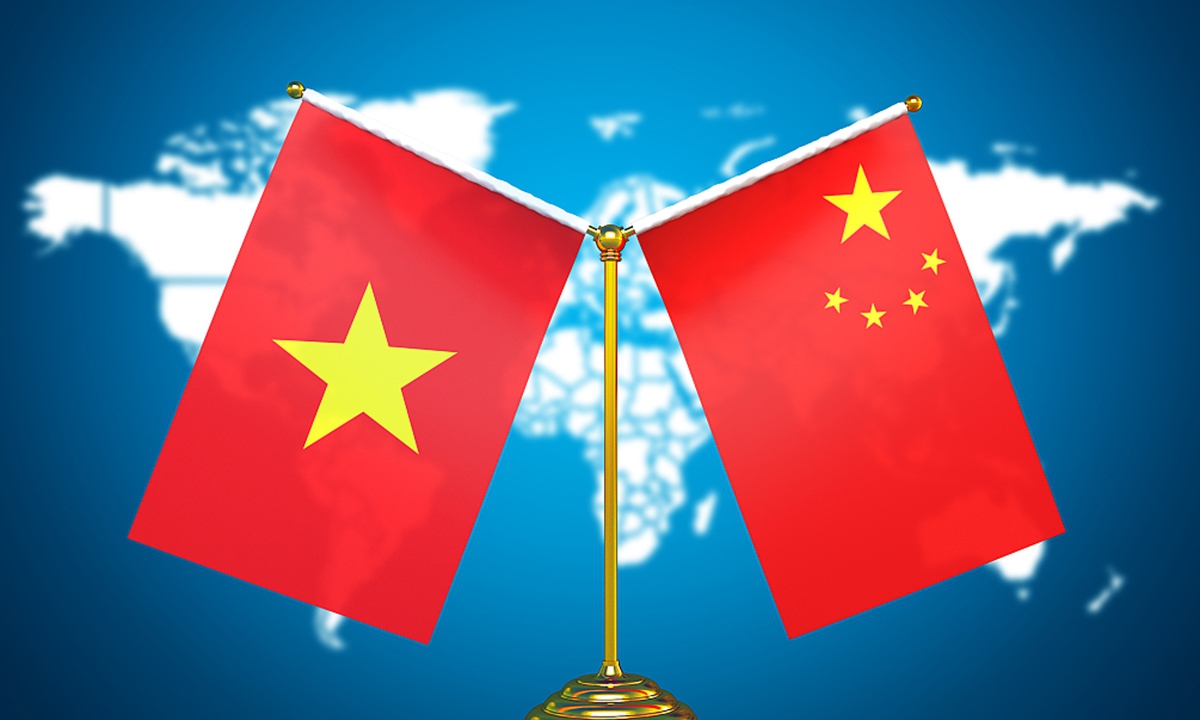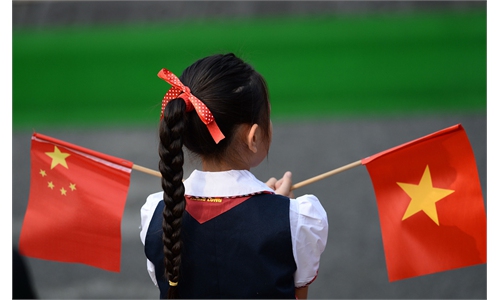Meaning of China-Vietnam ties beyond certain countries’ comprehension: Global Times editorial
Meaning of China-Vietnam ties beyond certain countries’ comprehension

Photo: VCG
General Secretary of the Communist Party of Vietnam Central Committee Nguyen Phu Trong will pay an official visit to China from October 30 to November 2 at the invitation of Xi Jinping, general secretary of the Communist Party of China (CPC) Central Committee and Chinese president. He will be the first foreign leader to visit China since the 20th National Congress of the CPC. In the following week, China will also welcome Pakistani Prime Minister Shehbaz Sharif, Tanzanian President Samia Suluhu Hassan and German Chancellor Olaf Scholz.
One of the special areas of China-Vietnam relations lies in the inter-party exchanges, which plays a role in defining the direction of bilateral relations. The special friendship of "comrades as well as brothers" is a valuable asset of the two parties and two peoples. Since the normalization of bilateral ties in the early 1990s, the two parties have maintained the practice of exchanging congratulatory messages and high-level visits after party congress. After the 19th National Congress of the CPC, General Secretary Xi made his first foreign visit to Vietnam. Trong's visit this time continues the tradition and demonstrates the mutual trust and friendly relationship between the two parties. Vietnam's state news agency, the Vietnam News Agency, said that Trong's trip reflects Vietnam's consistent position: to regard relations with China as a "top priority" in foreign policy.
China-Vietnam relations have another layer of specialty. The Biden administration is trying to reshape the strategic environment around China. To put it bluntly, while Washington realizes that it cannot change China from within, it has decided to encircle China and isolate and contain China in diplomacy and strategy. A couple of days ago, there was a visit to the country by Assistant Secretary of State for East Asian and Pacific Affairs of the US State Department Daniel J. Kritenbrink. At a press conference in Hanoi, he assured the country that the US will not allow Vietnam to be coerced by a major country. The intention of provocation is obvious.
Perhaps in the eyes of Washington political elites, there are many ways to drive a wedge between China and Vietnam, so they spend a lot of energy to "sway Vietnam." But this hasn't obstructed mutually beneficial cooperation between China and Vietnam. The fundamental reason is that they underestimated the independent tradition of Vietnam's diplomacy and misunderstood the solid foundation of friendly cooperation between China and Vietnam. Both China and Vietnam are socialist countries governed by Communist Party. China's reform and opening-up and Vietnam's Đổi Mới policy have formed a huge intersection of interests and mutual reference values. The close exchanges between the two parties lead the development of bilateral relations. If it is simply believed that Vietnam has to depend on China economically, it would be a major misjudgment of the relationship between the two countries. In fact, the US and the West have never given up on "peaceful evolution" against China and Vietnam.
Therefore, we particularly understand and appreciate Vietnam's "four No's" policy - Vietnam advocates not joining a military alliance; non-alignment against another country; foreign countries are not allowed to set up military bases in Vietnam or use Vietnam's territory to fight against other countries; it rejects the use of force or the threat with force in international relations. These reflect Vietnam's political wisdom.
To a certain extent, the "four No's" have laid the foundation for the development of China-Vietnam relations toward the "four goods." In recent years, China and Vietnam have adhered to the policy of long-term stability, forward-thinking, good-neighborliness and comprehensive cooperation, and the spirit of being good neighbors, friends, comrades and partners. The bilateral friendship has reached a new stage of comprehensive strategic partnership. The meeting between the two leaders this time will surely make China-Vietnam friendship more solid.
China and Vietnam are neighbors and share similar cultures. Both are at a development phase when their societies and economies are fast developing. After the 20th National Congress of the CPC, The Chinese modernization construction on a new journey will create more development opportunities and dividends for neighboring countries including Vietnam. We are happy to see all neighboring countries become prosperous and strong. The achievements that China and Vietnam have made in terms of modernization, and the friendly relations between the two countries are not only in the interests of the two peoples, but also have a positive demonstration effect in the region and the world.
Finally, we once again warmly welcome the visits of Trong and other foreign leaders.

